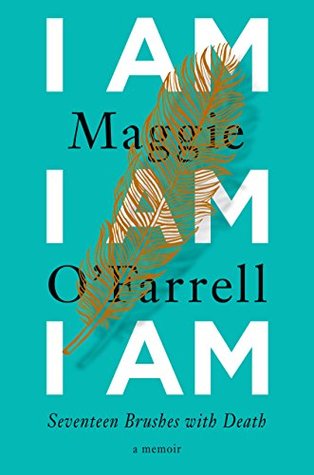More on this book
Community
Kindle Notes & Highlights
Read between
February 22 - March 5, 2022
If, as a child, you are struck or hit, you will never forget that sense of your own powerlessness and vulnerability, of how a situation can turn from benign to brutal in the blink of an eye, in the space of a breath. That sensibility will run in your veins, like an antibody. You learn fairly quickly to recognise the approach of these sudden acts against you: that particular pitch or vibration in the atmosphere. You develop antennae for violence and, in turn, you devise a repertoire of means to divert it.
We are, all of us, wandering about in a state of oblivion, borrowing our time, seizing our days, escaping our fates, slipping through loopholes, unaware of when the axe may fall.
If you are aware of these moments, they will alter you. You can try to forget them, to turn away from them, to shrug them off, but they will have infiltrated you, whether you like it or not. They will take up residence inside you and become part of who you are, like a heart stent or a pin that holds together a broken bone.
That the things in life which don’t go to plan are usually more important, more formative, in the long run, than the things that do.
You need to expect the unexpected, to embrace it. The best way, I am about to discover, is not always the easy way.
The people who teach us something retain a particularly vivid place in our memories. I’d been a parent for about ten minutes when I met the man, but he taught me, with a small gesture, one of the most important things about the job: kindness, intuition, touch, and that sometimes you don’t even need words.
There is a school of thought out there that expects women to get over a miscarriage as if nothing has happened, to metabolise it quickly and get on with life. It’s just like a bad period, a friend of mine was told, briskly, by her mother-in-law.
Why don’t we talk about it more? Because it’s too visceral, too private, too interior. These are people, spirits, wraiths, who never breathed air, never saw light. So invisible, so evanescent are they that our language doesn’t even have a word for them.
Karen Blixen wrote, in her Seven Gothic Tales, “I know a cure for everything: salt water…in one way or the other. Sweat, or tears, or the salt sea.”
After he had sailed around the Mediterranean in 1869, Mark Twain said that travel was “fatal to prejudice, bigotry, and narrow-mindedness.” Neuroscientists have been trying for years to pin down what it is about travel that alters us, how it effects mental change. Neural pathways become ingrained, automatic, if they operate only by habit. They are highly attuned to alterations, to novelty. New sights, sounds, languages, tastes, smells stimulate different synapses in the brain, different message routes, different webs of connection, increasing our neuroplasticity. Our brains have evolved to
...more
“Foreign experiences increase both cognitive flexibility and depth and integrativeness of thought, the ability to make deep connections between disparate forms.”
Our brains are a mass, a web, of interconnecting cells, which are lit up, like strings of fairy-lights, by communication. We are, at our very core, in our very essence, animated by circuitry, by the transmission of information.
We do what we have to do to survive; as a species, we are inventive in the face of adversity. Robert Frost said, “The best way out is always through,” and I believe this to be true but, at the same time, if you can’t go through, you can always go around.
I could have died there in that hospital but I didn’t. I could have been condemned to a life of immobility but I wasn’t. I dodged a bullet—many, in fact.
You school yourself, quickly, to keep your anxiety, your levels of vigilance tamped down, concealed, to maintain calm, to speak in a modulated voice, even when you are so gripped with panic that you can’t hear anything other than your pounding heart.
You will want nothing more for your child, for all your children, than for them to live their lives unencumbered by worry, by discomfort, by the judgement of others. You will go to bed at night and breathe into the dark and think, one more day. I kept her alive for one more day.


